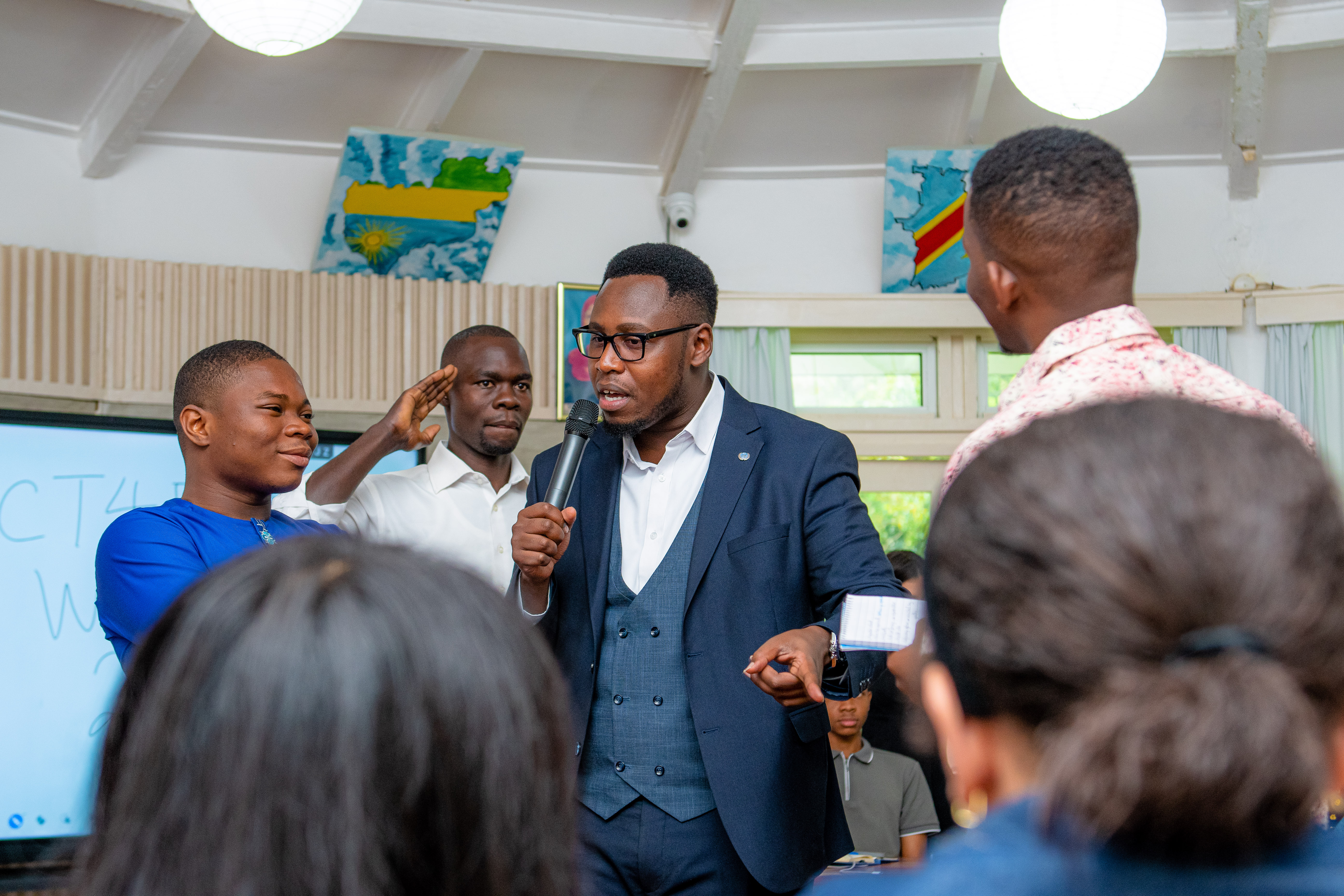In April 2025, we took part in the Act4Food Youth Leaders Workshop held in Arusha, Tanzania, a truly transformative experience that deepened our already strong convictions of the power and potential of young people to shape the future of our food systems. Organized by ACT4FOOD with support from the Global Alliance for Improved Nutrition (GAIN), the workshop brought together 22 youth leaders from across the globe working under the ACT4FOOD banner, along with GAIN staff and additional food systems youth leaders from Tanzania.
Over the course of three days, we gathered not just to learn, but to reflect, engage, and act on the urgent need to change how the systems that feed us deliver for society, and our planet. The workshop opened with powerful remarks from Prisca Rwezahura, GAIN’s Country Director in Tanzania, who set the tone by emphasizing the crucial role of young people in driving change.
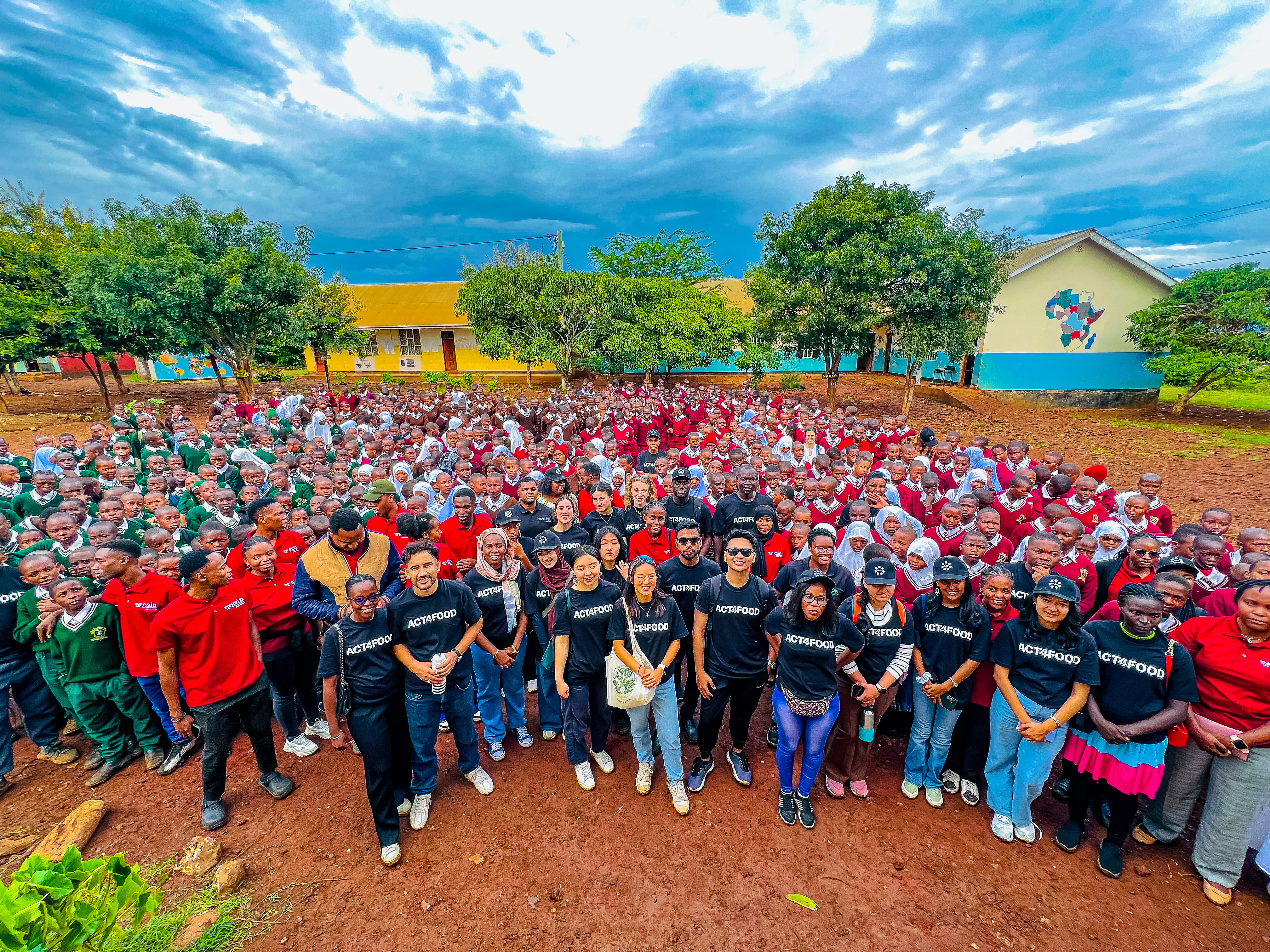
“Youth aren’t just the future, they are already here, already doing the work, and their voices matter,” she reminded us. Her words resonated deeply, not just because of their truth, but because they marked a shift from tokenism to genuine inclusion.
We know too well that our current food systems are deeply flawed. They are a major driver of the climate crisis, biodiversity loss, and growing health inequities. More than that, these systems are failing to nourish everyone fairly. They are often rooted in structures that violate basic human rights, exploiting labour, marginalizing small-scale producers, and displacing Indigenous communities. If we are serious about achieving the Sustainable Development Goals (SDGs) by 2030, then food systems transformation must be central to the global agenda.
Yet, despite being among the most affected by these broken systems, young people are often excluded from the places where decisions are made to shape their transformation. Youth are rarely invited to participate, even though the consequences of today’s decisions will impact them, and future generations, for decades to come. The irony is striking: while young people carry the burden of a failing system, we are often denied the power to change it.
The ACT4FOOD workshop was an example of what youth engagement should look like. It created space for reflection, creativity, and action. One of the first activities involved each of us sharing our personal journey in the food system. These were moving stories of dreams, passion, frustration, local challenges, and grassroots projects. They reminded us that while our contexts differ, our commitment to better food systems unites us. In one particularly engaging session, youth leaders took part in a simulation debate, each of us stepping into different roles; a policymaker, a farmer, a business leader; to argue whether countries should prioritize local food production over global trade. The role-play exercise helped participants to look through the eyes of decision makers and understand the balancing act policymakers often face confronted with complex food systems.
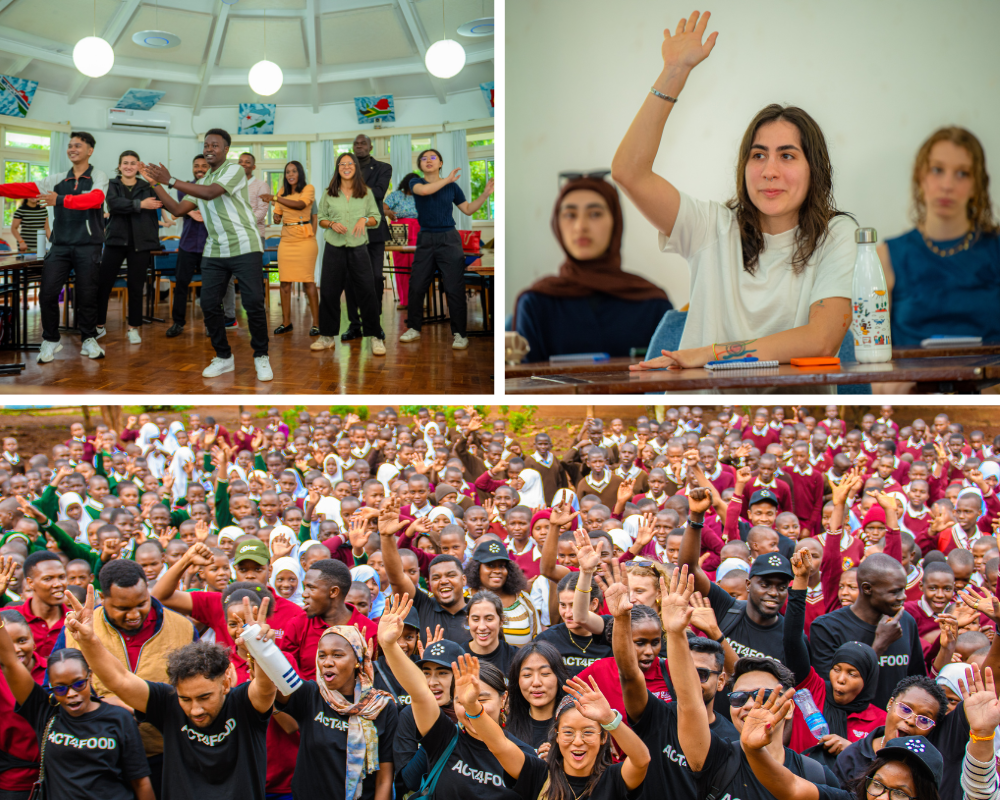
Communication was another major theme. Youth leaders discussed how to tell stories, mobilize support, and influence change through digital platforms. In an era of misinformation, the ability to communicate with clarity and impact is a critical skill for any youth leader. The session wrapped up with a social media challenge in honour of Earth Day, which turned out to be so much fun.
Perhaps the most heartwarming moment of the workshop was the field visit to Kinana Secondary School, where the Arusha-based youth group Vijana4Food has created a thriving school garden. Seeing students grow fruit and vegetables to support their own nutrition, and taking pride in doing so, was very inspiring.
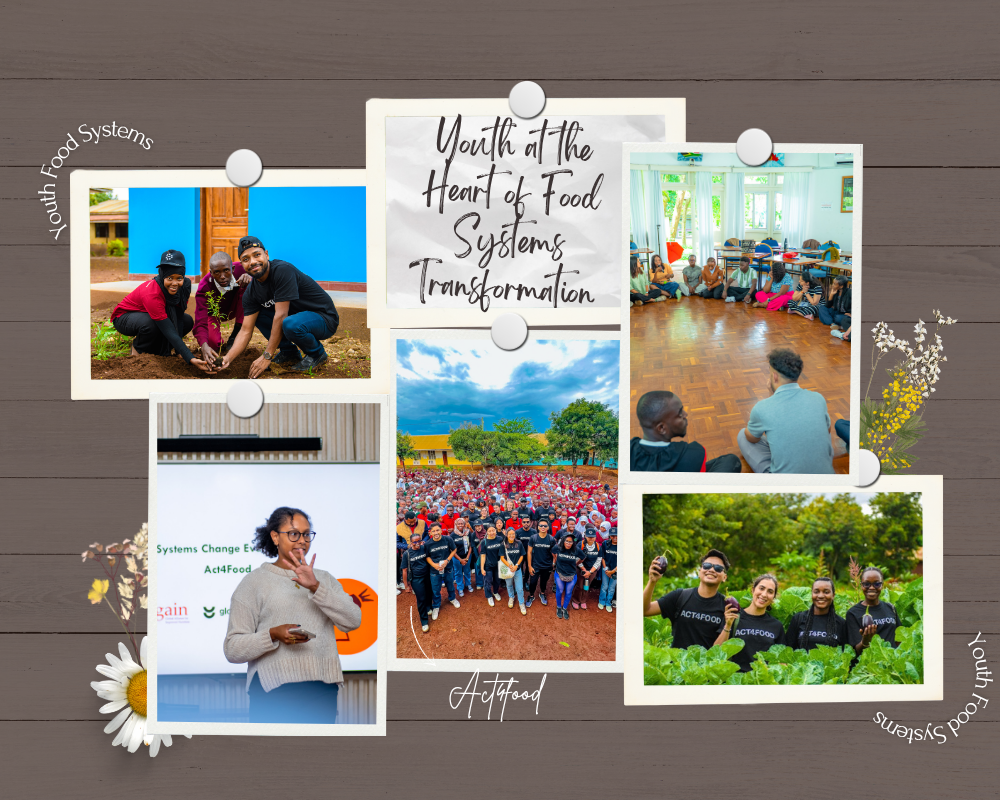
To mark Earth Day, we joined them in planting fruit trees around the school. It was a symbolic act, yes, but also a practical one. Those trees will nourish future students long after we’ve left, a reminder that small, local actions matter immensely.
The final day of the workshop was all about turning ideas into tangible plans. We focused on policy engagement, learned how to map stakeholders, and brainstormed three collective action campaigns. These focused on school nutrition, preserving indigenous foods, and holding multinational corporations accountable for their role in shaping food systems. These are not just abstract concepts, they are practical campaigns that youth leaders will carry forward in our respective communities and globally.
There was a great opportunity for GAIN staff to share insights on how young people can influence policy, a space often seen as distant or inaccessible.
“While policy work may seem complex, young people can and should play a role. Through advocacy, stakeholder mapping, coalition-building, and strategic use of social media, youth leaders can begin to influence decisions in meaningful ways. Youth leaders must not shy away from the hard work of engaging with government structures and corporate actors. Change happens when we show up, speak up, and stay engaged.” – Mark Gachagua
At the end of the workshop, youth leaders made a collective pledge to act but also issued a firm demand. Youth are committed to doing their part, but they need others, especially governments and businesses, to step up. Youth leaders demand urgent, large-scale action to create a food system that is just, nourishing, and sustainable. Youth leaders are calling for inclusive decision-making spaces where youth are not just consulted but empowered. Youth leaders are asking for investments in youth-led innovations, support for Indigenous knowledge systems, and accountability for corporate practices that harm
people and planet.
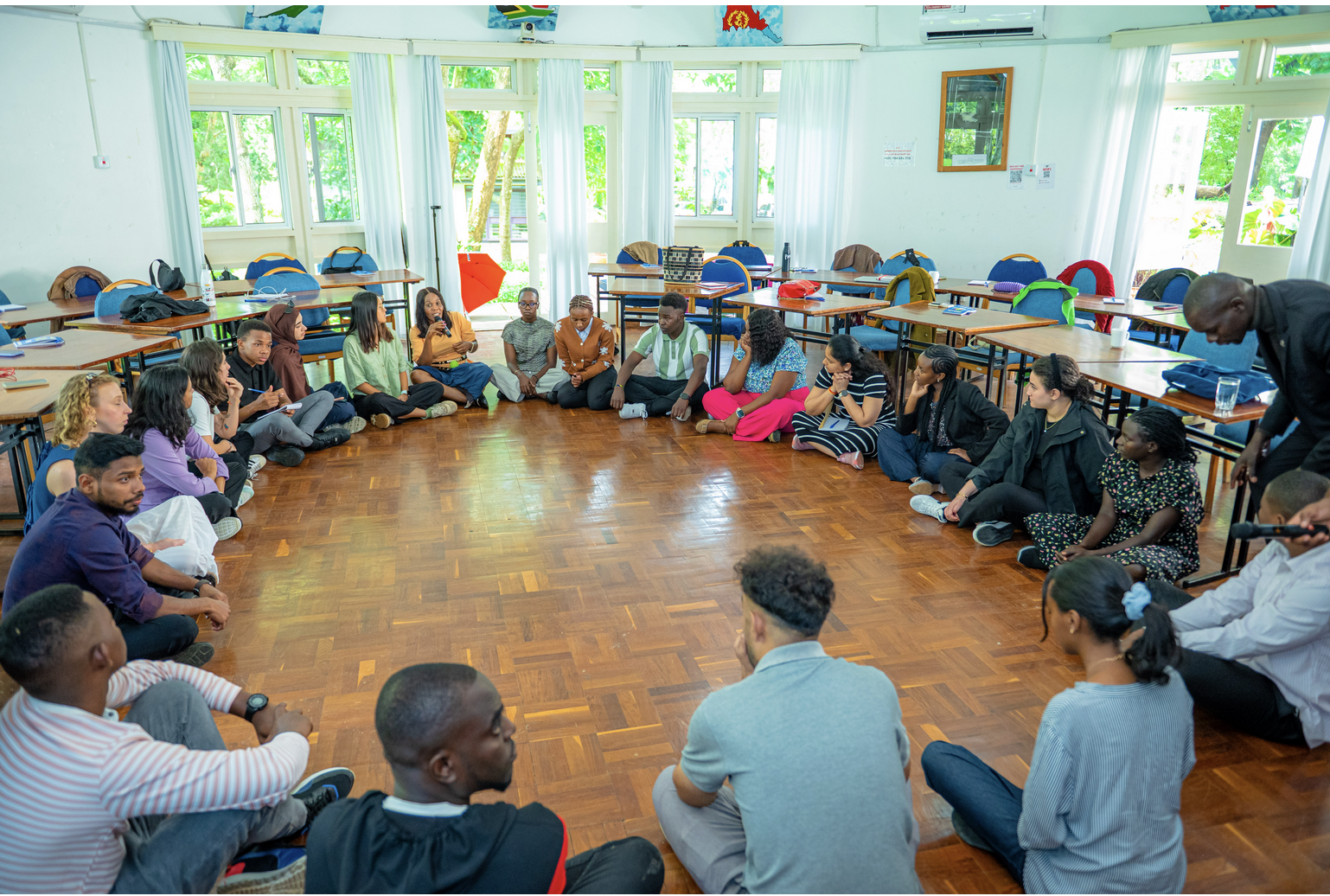
The Arusha experience reminds us all that youth are not waiting. Across the globe, youth are already leading, already innovating, already changing the narrative. But we need those who hold the balance of political power to recognize this potential, and to act with the same urgency. The transformation of our food systems depends on it.
Reflecting on my time in Tanzania, we feel energized and hopeful. The path ahead may be difficult, but with young people at the forefront, it is undoubtedly bright. We are ready to shape a future where food systems work for all. The question now is, will the world let youth lead?
